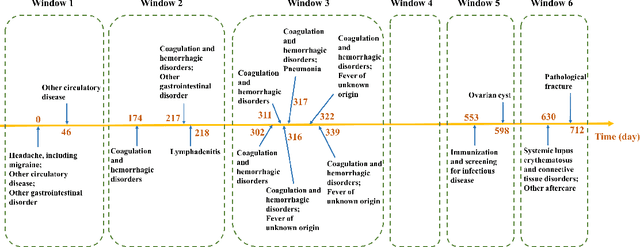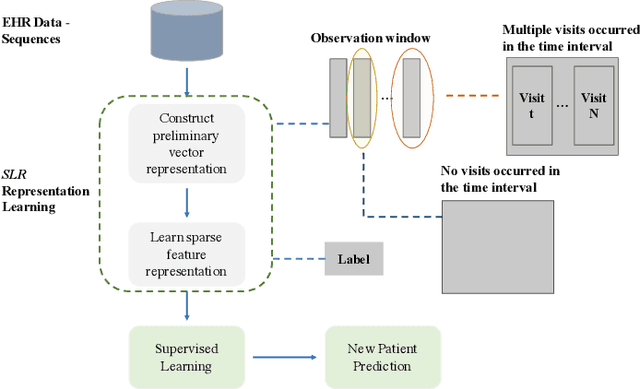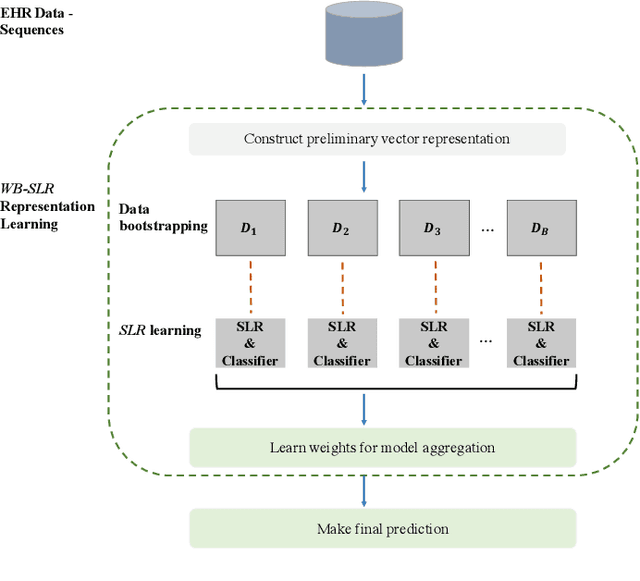Jennifer Lobo
Sparse Longitudinal Representations of Electronic Health Record Data for the Early Detection of Chronic Kidney Disease in Diabetic Patients
Nov 09, 2020



Abstract:Chronic kidney disease (CKD) is a gradual loss of renal function over time, and it increases the risk of mortality, decreased quality of life, as well as serious complications. The prevalence of CKD has been increasing in the last couple of decades, which is partly due to the increased prevalence of diabetes and hypertension. To accurately detect CKD in diabetic patients, we propose a novel framework to learn sparse longitudinal representations of patients' medical records. The proposed method is also compared with widely used baselines such as Aggregated Frequency Vector and Bag-of-Pattern in Sequences on real EHR data, and the experimental results indicate that the proposed model achieves higher predictive performance. Additionally, the learned representations are interpreted and visualized to bring clinical insights.
 Add to Chrome
Add to Chrome Add to Firefox
Add to Firefox Add to Edge
Add to Edge